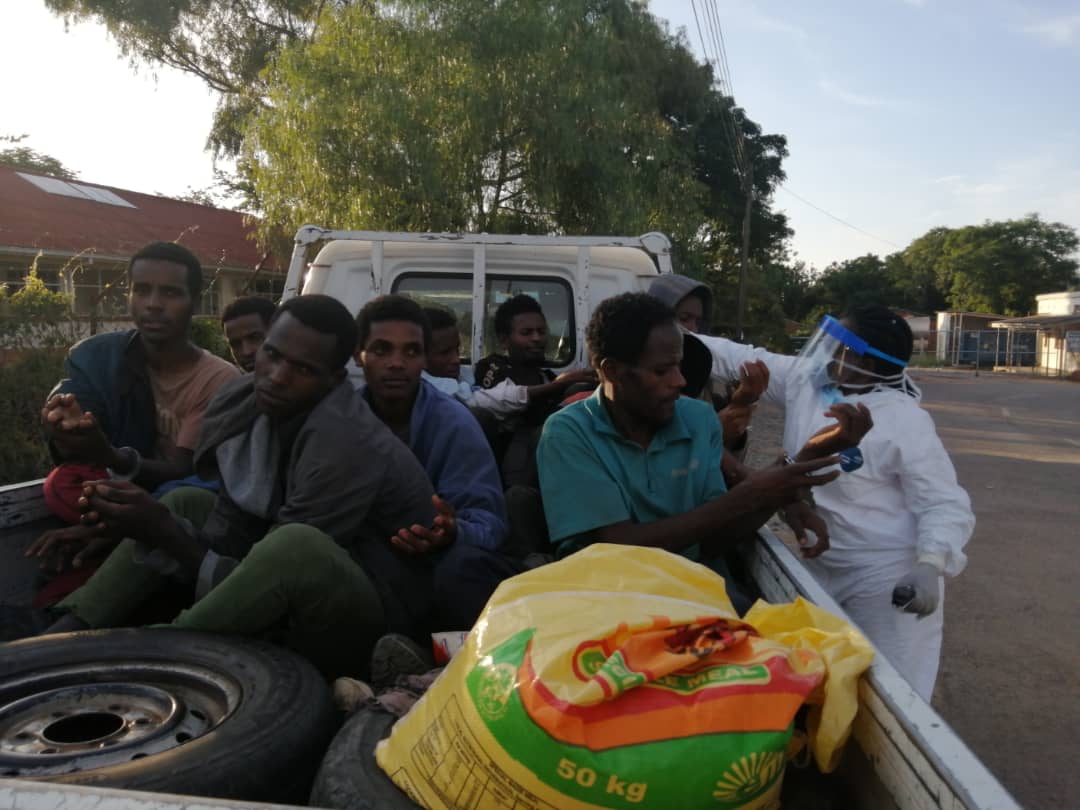By Vumani Mthiyane
Fifteen Ethiopian nationals were Tuesday arrested by Zimbabwe Republic Police (ZRP) at a rural homestead at Switsha village under Chief Nhlamba in Gwanda district on allegations of illegally entering the country.
Working on a tip-off from concerned villagers who have been taking care of the Ethiopians since Wednesday last week, police officers launched a midmorning raid and found 15 Ethiopian nationals at the said homestead.
Upon arrival, the police officers discovered that one of the Ethiopians was in a poor state of health and quickly rushed him to Gwanda Hospital for treatment.
Following the outbreak of the deadly COVID-19 pandemic, villagers were fearing for their lives as they suspected that the foreigners might have evaded screening for Coronavirus.
Matabeleland South Provincial Medical Director, Dr Rudo Chikodzere confirmed that the Ethiopian national is currently receiving treatment.
“Among the 15 foreigners from Ethiopia there was one who was very ill and we have made an assessment and the patient does not have any symptoms of Coronavirus but is dehydrated and weak.
“According to the case definition, he did not fit the coronavirus definition. We will continue to take precautionary measures and manage him as a suspected case.
So we are going to quarantine all of them for the next 21 days to ensure that everyone is safe,” Dr Chikodzore.
Asked about the isolation centre where they will be kept, the PMD said they are still doing logistical issues on where to house them in the event they turn out to be infected since their travel history is unknown.
Sources who spoke to CITE said the foreigners came with a cross-border transporter who wanted to facilitate their entry into South African through the Mlambapeli border post.
However, when the deal went sour the transporter then took them to his rural home at Sukwi and left them in the custody of his family to take care of them.
Matabeleland South police spokesperson, Chief Inspector Philasani Ndebele confirmed having received the report but referred all questions National Police Spokesperson Assistant Commissioner Paul Nyathi.
“Yes, I can confirm having received a case of Ethiopians foreigners who were arrested at Gwanda area. 15 of them will be charged under the Immigration Act and we are currently working with other stakeholders.
“Remember the country is under lockdown and these people will be in our custody where health and security issues will be considered,” said Ass Comm Nyathi.

